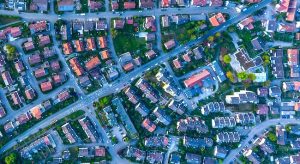
The benefits of having good neighbors are well known. A good neighbor will keep an eye on your house when you’re away, take in your mail, water your plants, and feed your fish. Good neighbors will watch out for you, greet you on your walk around the block, and join you for the occasional barbecue or Sabbath meal.
But good neighbors, we learn from Abraham in this week’s Torah portion, are much more than a friendly face or a great help when you’re on vacation. In fact, they’re a crucial element of a meaningful life.
Abraham asked his loyal servant Eliezer to go to Haran, Abraham’s home before moving to Canaan, to find a wife for Isaac. “Do not look for a wife in Canaan,” he warned. Eliezer agreed to the mission, but asked, “What if the woman I find does not want to come with me? Should I bring your son there?” Abraham responded emphatically, “Be careful. My son should not go back to Haran.”
Eliezer’s choice for Isaac would certainly be a bride with the stellar qualities befitting an eventual Patriarch of the Jewish people. But even if he were to find the perfect wife for Isaac, Abraham said he would approve only if Isaac did not have to move to Haran. In other words, marriage to that chosen bride would not be worth the cost of moving to Haran!
What was so terrible, so insidious about Haran? We know that Laban, a renowned con-artist and manipulator, lived there. He was the brother of Rebecca, Isaac’s eventual bride. Living in close proximity to such a person, or even in a society tolerant of Laban and possibly responsible for producing the likes of Laban, would have a detrimental effect on Isaac. This is what Abraham feared for his precious son, who was intended to father the Jewish nation.
It is easy to underestimate the effects of a neighborhood or a society. We might envision ourselves as independent thinkers, making decisions for ourselves, choosing what to believe and whom to trust. Our surroundings, however, affect us intensely — and it is imperative to consider the influence on our own values when choosing a neighborhood in which to live and build a family. With the plethora of media outlets available to us today, this must be taken to include what we read, listen to, and watch through the various mediums of communication. All of these things make up part of our daily environment, and if we appreciate how sensitive we are to the subtle, yet profound, messages and examples buzzing throughout our “neighborhood,” we will steer ourselves towards surroundings more in line with the values to which we aspire. (Based on Derash Moshe, from Rabbi Moshe Feinstein zt”l)


